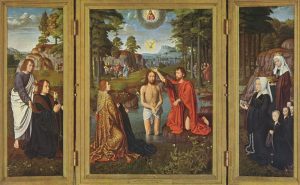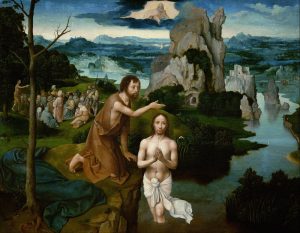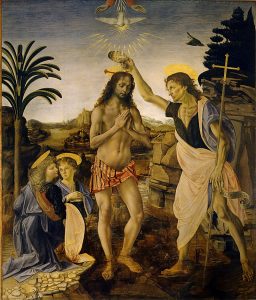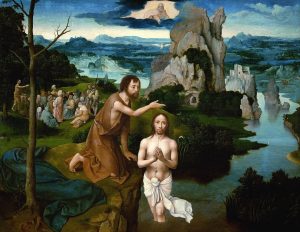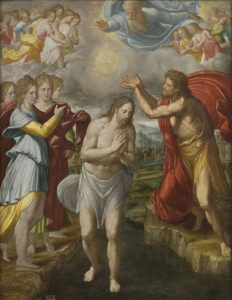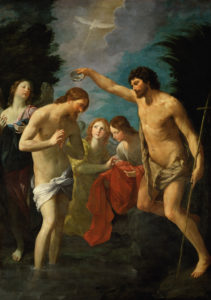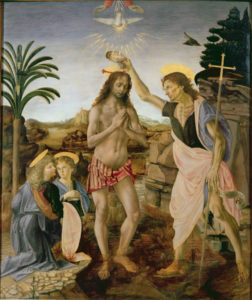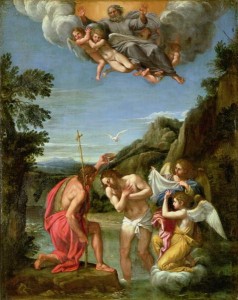Thoughts on Sunday’s Lessons for Jan. 12, 2025 (Epiphany 1C/Baptism of Our Lord)
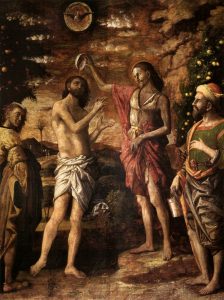
The Baptism of Christ (1506), tempera painting on canvas by Andrea Mantegna (1431-1506). Basilica of Sant’Andrea, Mantua, Italy. (Click image to enlarge.)
First Reading: Isaiah 43:1-7
We have an extra-long season after Epiphany this year because Easter does not come until April 20, moving Ash Wednesday forward to March 5. That’s almost as late as Easter can possibly occur, so Epiphany stretches out to fill the gap with eight weeks of epiphanies: Gospel readings focused on events that manifested the divinity of Jesus. We start with the baptism of Jesus, the beginning of his public ministry as told by Luke. In Sunday’s first reading, the Prophet Isaiah assures the people returning from exile not to fear because God is with us. God calls us by name and watches over us as we pass safely through waters, rivers, and fire.
Psalm: Psalm 29
Psalm 29 is a thundering hymn of the ancient temple, a song depicting the power of God as it might be seen and heard in a great storm. Thunder crashes and lightning flashes; fire and winds shake the earth and topple trees. These are not things to fear, the Psalmist sings, but signs of the great power and majesty of God. As the storm comes to a close, we are left with God’s promises of strength and peace, gifts that we too seek to gain when we are sealed by the Holy Spirit in Baptism.
Second Reading: Acts 8:14-17
The Acts of the Apostles is a fascinating story about the early church. Written by the Evangelist we know as Luke, it is essentially Part Two of Luke’s gospel, describing years after the fact how Christianity spread from its infant beginning in Jerusalem to much of the Mediterranean world. Though rooted in Judaism, Acts tells us that the church quickly opened its doors to Gentiles as well. This reading speaks of this significant change, as Peter and John travel to Samaria to welcome and embrace the once-hated Samaritans – now baptized in water and the Spirit – as new brothers and sisters in the church.
Gospel: Luke 3:15-17, 21-22
Was John the Baptist the Messiah? Many of his followers came to him at the Jordan hoping that this was the case, we hear as this Gospel passage begins. But John demurs, declaring himself unworthy to untie Jesus’s sandals. John says that it is Jesus, not John, who will baptize not only with water but with the Holy Spirit and fire. John envisions Jesus presiding over a strict and final judgement like a harvester, separating the wheat from the chaff. Then we hear the familiar conclusion of Jesus’s baptism: The Spirit came down as a dove, and God’s voice proclaims that Jesus is God’s son, the Beloved, with whom God is well pleased.

